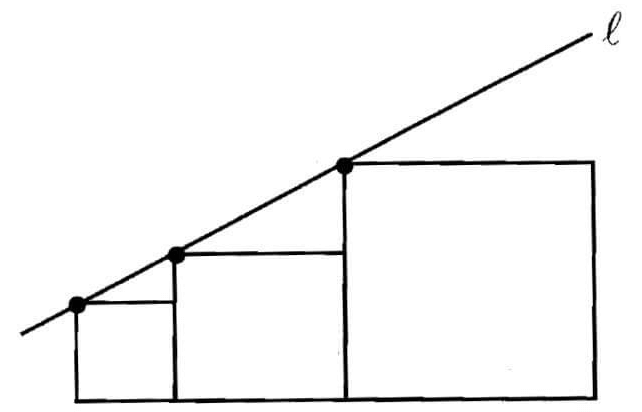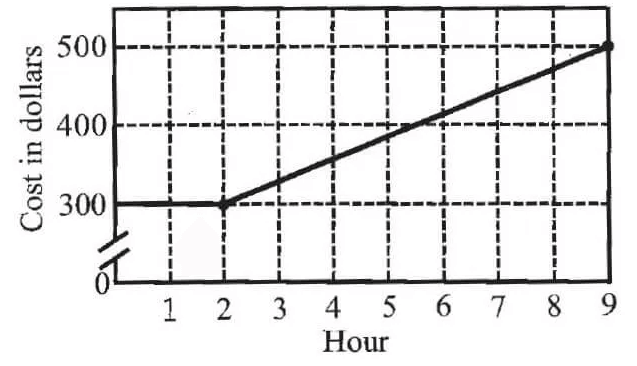HOW TO FIND MAXIMUM AND MINIMUM POINTS USING DIFFERENTIATION
The following steps would be useful to find the maximum and minimum value of a function using first and second derivatives.
Step 1 :
Let f(x) f(x) be a function. Find the first derivative of f(x), which is f'(x).
Step 2 :
Equate the first derivative f'(x) to zero and solve for x, which are called critical numbers.
Step 3 :
Find the second derivative of f(x), which is f"(x).
Step 4 :
Substitute the critical numbers found in step 2 in the second derivative f"(x).
Step 5 :
If f"(x) < 0 for some value of x, say x = a, then the function f(x) is maximum at x = a.
If f"(x) > 0 for some value of x, say x = b, then the function f(x) is minimum at x = b.
Step 6 :
To get maximum and minimum values of the function substitute x = a and x = b in f(x).
Maximum value = f(a)
Minimum value = f(b)
Step 7 :
Maximum point : (a, f(a))
Minimum point : (b, f(b))
Examples 1-2 : Find the maximum and minimum points of the following functions.
Example 1 :
2x3 - 3x2 - 12x + 5
Solution :
Let f(x) = 2x3 - 3x2 - 12x + 5.
f'(x) = 2(3x2) - 3(2x) - 12(1) + 0
f'(x) = 6x2 - 6x - 12
Equating f'(x) to zero,
f'(x) = 0
6x2 - 6x - 12 = 0
Divide both sides by 6.
x2 - x - 2 = 0
(x - 2)((x + 1) = 0
x - 2 = 0 or x + 1 = 0
x = 2 or x = -1
Find the second derivative :
f'(x) = 6x2 - 6x - 12
f"(x) = 6(2x) - 6(1) - 0
f"(x) = 12 x - 6
Substitute x = 2 in f"(x).
f"(2) = 12(2) - 6
= 24 - 6
f"(2) = 18 > 0 Minimum
To find the minimum value, substitute x = 2 in f(x).
f(x) = 2x3 - 3 x2 - 12 x + 5
f (2) = 2(2)3 - 3(2)2 - 12(2) + 5
= 2(8) - 3(4) - 24 + 5
= 16 - 12 - 24 + 5
= 21 - 36
= -15
Substitute x = -1 in f"(x).
f"(-1) = 12(-1) -6
= -12 - 6
f"(-1) = -18 > 0 Maximum
To find the maximum value, substitute x = -1 in f(x).
f(x) = 2x3 - 3x2 - 12 x + 5
f(-1) = 2(-1)3 - 3(-1)2 - 12(-1) + 5
= 2(-1) - 3(1) + 12 + 5
= -2 - 3 + 12 + 5
= -5 + 17
= 12
Therefore,
maximum point = (-1, 12)
minimum point = (2, 15)
Example 2 :
Find the maximum and minimum value of the function
x3 - 3x2 - 9x + 12
Solution :
Let f(x) = x3 - 3x2 - 9 x + 12.
f'(x) = 3x2 - 3(2x) - 9(1) + 0
f'(x) = 3x2 - 6x - 9
f'(x) = 0
3x2 - 6x - 9 = 0
Divide both sides by 3.
x2 - 2x - 3 = 0
(x + 1)(x - 3) = 0
x + 1 = 0 or x - 3 = 0
x = -1 or x = 3
Find the second derivative :
f'(x) = 3x2 - 6x - 9
f"(x) = 3(2x) - 6(1) - 0
f"(x) = 6x - 6
Substitute x = -1 in f"(x).
f"(-1) = 6(-1) - 6
= -6 - 6
f"(-1) = -12 < 0 ----> f(x) is maximum
To find the maximum value, substitute x = -1 in f(x).
f(x) = x3 - 3x2 - 9 x + 12
f(-1) = (-1)3 - 3(-1)2 - 9(-1) + 12
= -1 - 3(1) + 9 + 12
= -1 - 3 + 9 + 12
= -4 + 21
= 17
Substitute x = 3 in f"(x).
f"(3) = 6(3) - 6
= 18 - 6
f"(3) = 12 > 0 ----> f(x) is minimum
To find the minimum value, substitute x = 3 in f(x).
f(x) = x3 - 3x2 - 9 x + 12
f(3) = 33 - 3(3)2 - 9(3) + 12
= 27 - 3(9) - 27 + 12
= 27 - 27 - 27 + 12
= -27 + 12
= -15
Therefore,
maximum point = (-1, 17)
minimum point = (3, -15)
Example 3 :
The sum of two numbers is 80. Find the largest possible product.
Solution :
Let x and y be the two numbers.
x + y = 80
y = 80 - x ----(1)
Product of the two numbers :
= xy
= x(80 - x)
= 80x - x2
Let P(x) be the product of the two numbers.
P(x) = 80x - x2
Find the first derivative of P(x).
P'(x) = 80 - 2x
Find the second derivative of P(x).
P"(x) = -2
Equate the first derivative of P(x) to zero and solve for x, which is called critical number.
P'(x) = 0
80 - 2x = 0
-2x = -80
x = 40
Substitute x = 40 into P"(x) = -2.
P"(40) = -2 < 0
So, P(x) is maximum at x = 40.
Subsitute x = 40 into (1).
y = 80 - 40
y = 40
When the two numbers are 40 and 40, their product is minimum.
The largest possible product of the two numbers :
= 40 ⋅ 40
= 1600
Kindly mail your feedback to v4formath@gmail.com
We always appreciate your feedback.
©All rights reserved. onlinemath4all.com
Recent Articles
-
Digital SAT Math Problems and Solutions (Part - 146)
Apr 18, 25 06:52 AM
Digital SAT Math Problems and Solutions (Part - 146) -
Logarithmic Derivative Problems and Solutions
Apr 16, 25 09:25 PM
Logarithmic Derivative Problems and Solutions -
Digital SAT Math Problems and Solutions (Part - 145)
Apr 16, 25 12:35 PM
Digital SAT Math Problems and Solutions (Part - 145)

